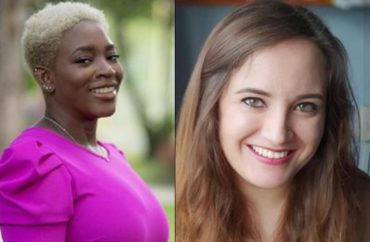
Public university refuses to share substantial information on the projects
Public health researchers who want to advance “anti-racism” and be “inclusive” can get money from George Mason University.
The “Mentoring for Anti-Racism and Inclusive Excellence” program provided grants to two College of Public Health doctoral students, Samantha Kanselaar and Julia Mandeville, for their projects.
However, the taxpayer-funded university declined to give many specifics on how much money would be spent on each project nor what the proposals entailed.
The university “has many research projects in development on a wide range of issues that seek to address society’s grand challenges, with funding from many sectors,” Michelle Thompson, the communications director for the public health college, told The Fix via email in early June.
“While Mason does not share student research proposals, information on the grant is available here,” Thompson wrote. “More details on Mason research can be found at research.gmu.edu.”
The provided links did not provide any information on funding. The application form is hidden behind a wall that can only be accessed by George Mason affiliates.
The Fix could not locate emails for the grant recipients.
MORE: UC Berkeley biology professors continue to use ‘anti-racism’ teaching guide
Kanselaar’s (pictured, right) project is titled “Structural Racism and Intimate Partner Violence (IPV) in Immigrant Communities of Color: A Conceptual Model,” according to the university news release. She will “create a model that explains ways in which structural racism manifests to drive intimate partner violence (IPV) in immigrant communities of color.”
“Immigrant women of color experience high levels of IPV and its consequences, and current explanations typically use gender or culture lenses,” the university’s news release stated. “Less attention has been given to the impact structural racism has on driving IPV.”
Mandeville’s (pictured, left) project titled “‘Virtually the Same…but Also Kind of Different’: An Exploration of How Racism and Generational Status Influence the Endometriosis Experiences of First Generation, Second Generation, and Third Generation Black Women Living in America.”
Mandeville’s project “characterizes the experiences of Black women and other women of color who have been diagnosed with or have symptoms of endometriosis.”
“The disease is not well studied in this population, Black patients often experience up to a three-year delay in diagnosis and worse surgical outcomes,” the news release stated.
The research is part of the College of Public Health’s goal to “solve society’s most difficult problems, including those created by systemic racism.”
Health professionals at GMU have other opportunities to see racism everywhere, even if it takes the use of virtual reality.
The College of Health and Human Services announced plans for “training [that] will educate faculty to recognize and react to implicit bias and microaggressions through a [virtual reality] simulation,” as The Fix reported in November 2022.
The program is being developed by the the university’s Inclusive Excellence Working Group with the goal to teach faculty about how to “mitigate the harmful effects of racism and discrimination.”
The group hopes to accomplish this “by discussing the nature of microaggressions, applying strategies to react to microaggressions from multiple perspectives, and demonstrating confidence and commitment to act.”
MORE: University hosts ‘Norse Paganism and Anti-Racism’ event
IMAGE: Publichealth.gmu.edu
Like The College Fix on Facebook / Follow us on Twitter





Please join the conversation about our stories on Facebook, Twitter, Instagram, Reddit, MeWe, Rumble, Gab, Minds and Gettr.